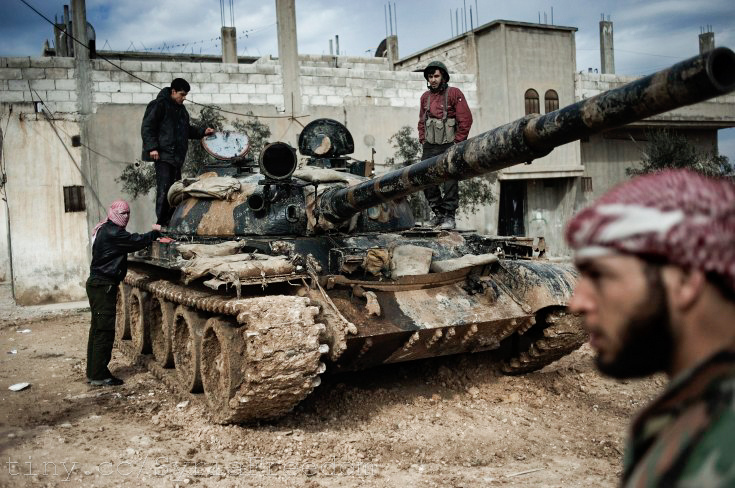
From Gary C. Gambill, National Interest: Given the scale of regime atrocities in the interim and the increasingly Sunni Islamist character of the revolt, Alawites and other minorities that benefited disproportionately from Assad’s rule (or at least suffered less than their fair share) have well-grounded fears of violent retribution when the walls come crumbling down. The fall of Saddam Hussein’s Sunni-dominated minoritarian regime led to several hundred extrajudicial executions of former officials within a year and a mass exodus of Christians, despite the presence of U.S.-led coalition forces. . . .
Most intervention plans under discussion amount to direct or indirect military support for insurgents likely to perpetrate atrocities once the tables have turned. It’s impossible to create and defend aid corridors or "safe zones" for refugees without providing rebels with rear bases to resupply and refit, particularly if the international community relies on neighboring Turkey to do the heavy lifting.
A no-fly zone designed to deprive all sides of offensive air power avoids the pitfalls of aiding and abetting combatants, but enforcing one without a UN Security Council mandate will still lead a sizable minority of the population to see the United States as a participant in the war. This could prolong Syria’s ordeal by bolstering Assad’s anti-imperialist credentials and making it easier for Iranian-backed malcontents to mobilize opposition to the successor regime. Taking part in a sectarian turf war decades in the making could also compromise U.S. credibility in contending with other multiconfessional hot spots, such as Lebanon and Iraq. Few advocates of intervention appear to be thinking this far ahead. . . .
Absent a workable plan for saving lives or a compelling strategic rationale for intervention, the United States should stay out of the conflict—while using all means short of force to dissuade the participants and their regional backers from committing egregious human-rights abuses. Once the smoke clears, Syria will need a benefactor with clean hands to help it pick up the pieces.
Gary C. Gambill is an associate fellow at the Philadelphia-based Middle East Forum. (photo: Freedom House)
Image: freedom%20house%209%2027%2012%20FSA.jpg
